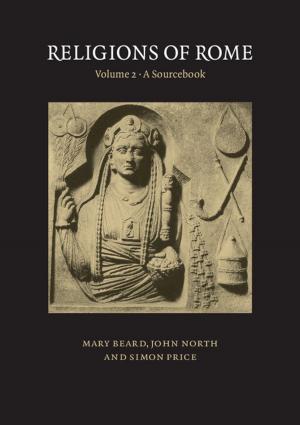The Sublime in Antiquity
Nonfiction, History, Ancient History, Fiction & Literature, Literary Theory & Criticism, Religion & Spirituality, Philosophy| Author: | James I. Porter | ISBN: | 9781316365366 |
| Publisher: | Cambridge University Press | Publication: | March 7, 2016 |
| Imprint: | Cambridge University Press | Language: | English |
| Author: | James I. Porter |
| ISBN: | 9781316365366 |
| Publisher: | Cambridge University Press |
| Publication: | March 7, 2016 |
| Imprint: | Cambridge University Press |
| Language: | English |
Current understandings of the sublime are focused by a single word ('sublimity') and by a single author ('Longinus'). The sublime is not a word: it is a concept and an experience, or rather a whole range of ideas, meanings and experiences that are embedded in conceptual and experiential patterns. Once we train our sights on these patterns a radically different prospect on the sublime in antiquity comes to light, one that touches everything from its range of expressions to its dates of emergence, evolution, role in the cultures of antiquity as a whole, and later reception. This book is the first to outline an alternative account of the sublime in Greek and Roman poetry, philosophy, and the sciences, in addition to rhetoric and literary criticism. It offers new readings of Longinus without privileging him, but instead situates him within a much larger context of reflection on the sublime in antiquity.
Current understandings of the sublime are focused by a single word ('sublimity') and by a single author ('Longinus'). The sublime is not a word: it is a concept and an experience, or rather a whole range of ideas, meanings and experiences that are embedded in conceptual and experiential patterns. Once we train our sights on these patterns a radically different prospect on the sublime in antiquity comes to light, one that touches everything from its range of expressions to its dates of emergence, evolution, role in the cultures of antiquity as a whole, and later reception. This book is the first to outline an alternative account of the sublime in Greek and Roman poetry, philosophy, and the sciences, in addition to rhetoric and literary criticism. It offers new readings of Longinus without privileging him, but instead situates him within a much larger context of reflection on the sublime in antiquity.















